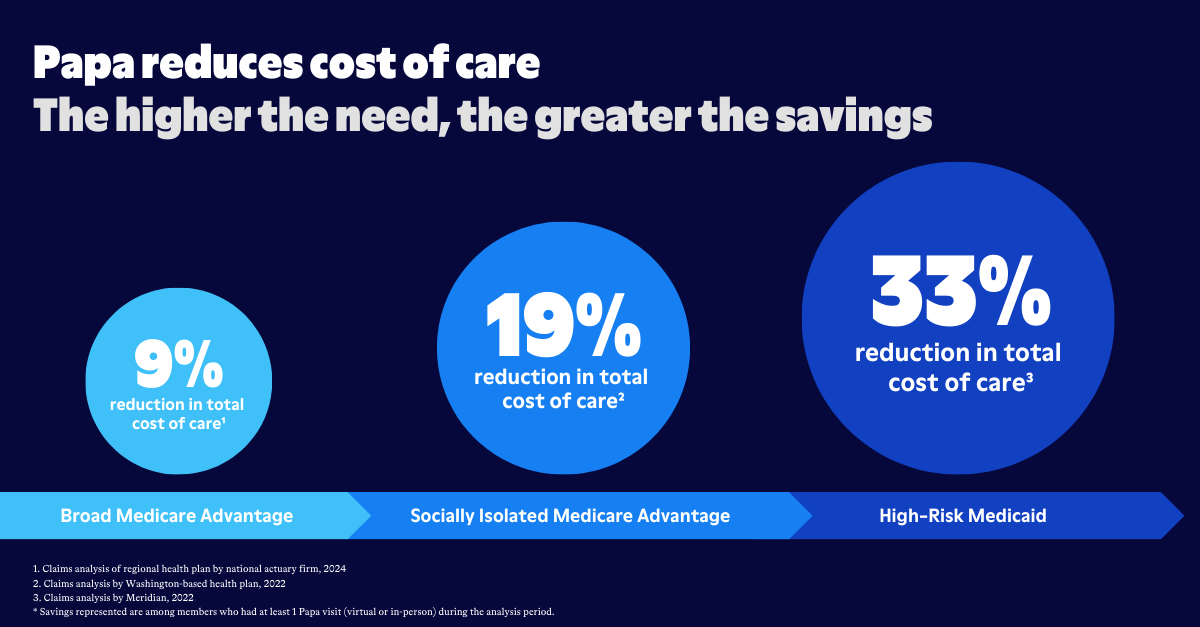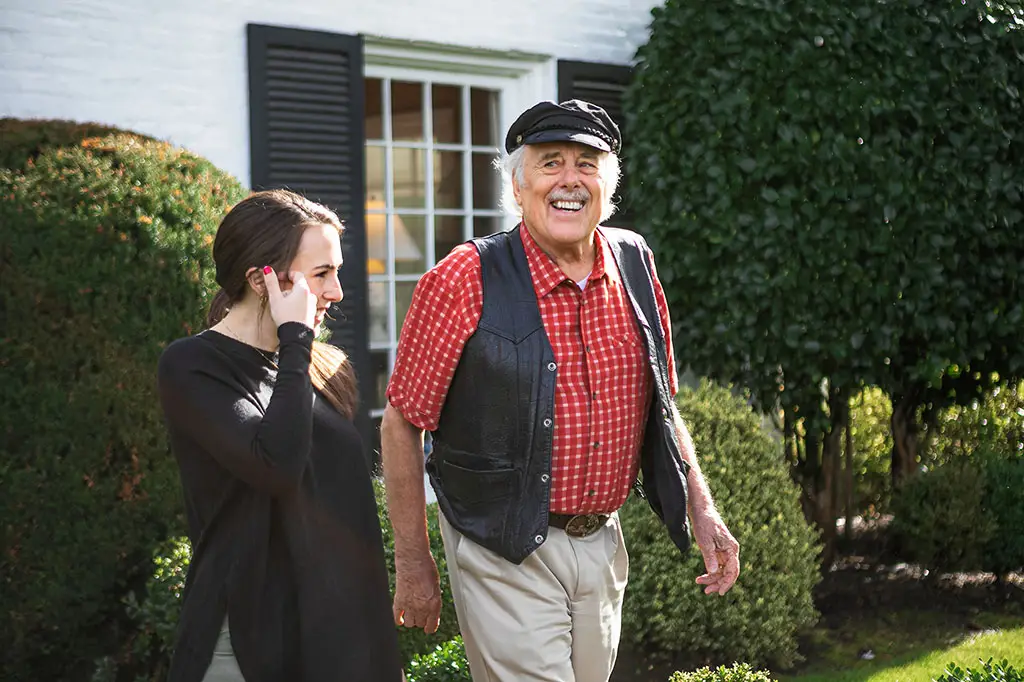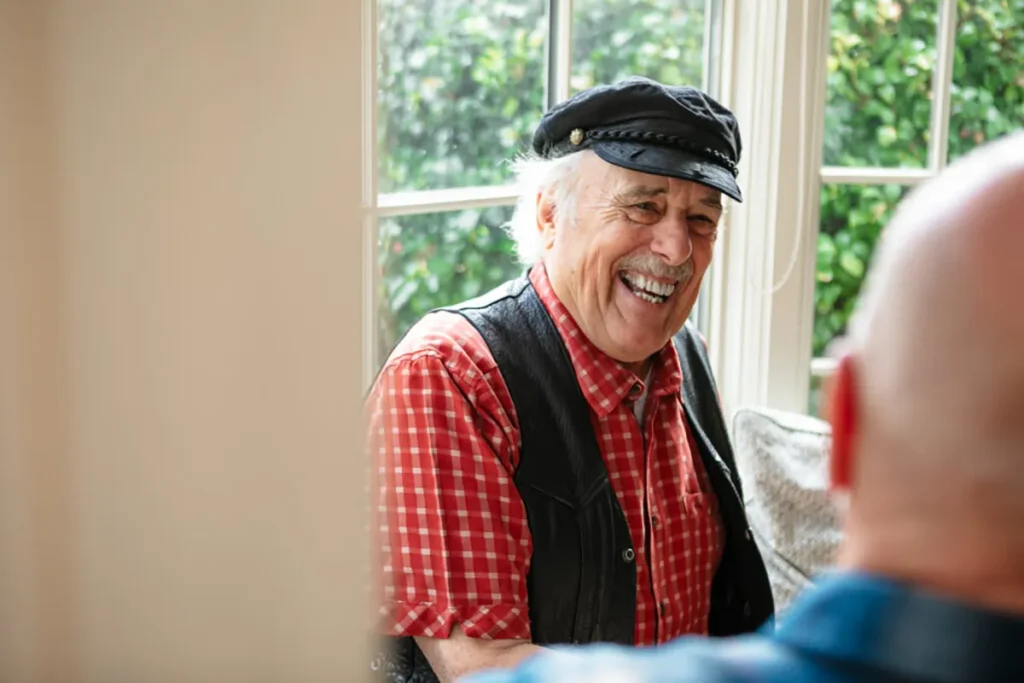
The over 65 population is growing exponentially in the US
When Geriatrician Dr. Carla Perissinotto proclaimed from the stage at our Pathfinders Summit that older adults rock, we laughed and clapped along with everyone else in the room. Then we listened closer, because Dr. Perissnotto was proclaiming something that we really believe here at Papa: Older adults rock. They really do. Papa was founded in order to support older adults to live healthy lives as they age, and this continues to be our primary mission. Therefore it is part of our goal to help dismantle ageism in healthcare.
Ageism in America overall is on the rise. Over 10,000 people in the U.S. will turn 65 today. And 10,000 more will turn 65 tomorrow. And each day after that. People 65 and older represented 16% of the U.S. population in 2019 but will make up 21.6% of the population by 2040. The 85+ population is projected to increase from 6.6 million in 2019 to 14.4 million in 2040. With numbers like these the pressure is on to figure out how to combat and reverse ageism.
People are living longer lives and because of that, the over 65 population is growing exponentially. But there's more to the story than just a rapidly growing population. Older adults are some of the most wonderful and interesting people on the planet. They are contributing to the world in millions of ways. They are scientists, as authors, as artists, as speakers, and as businessmen. They are teachers and gardeners and caregivers. They are our friends and relatives, the people we meet on the street, who we wave hello to each morning. Even our last two presidents were both over 65!
People in their 60's, 70's, and 80's have a whole lot more to give, and we want to give them the tools they need to stay healthy so that they can do just that. It starts by not only understanding them, but recognizing that yes, older adults really do rock.
What is Ageism?
Ageism, defined simply, is “discrimination against older people because of negative and inaccurate stereotypes.” These stereotypes are so ingrained in our culture that we don’t think twice about cracking jokes about aging or speaking about older adults in derogatory terms. We fight racism and sexism, but ageism is still very much socially acceptable.
The attitudes many people have about aging are often based on assumptions that just aren’t true. And the idea that aging is a decline—and older adults are a burden—is harmful not just to older adults themselves but to society as a whole.
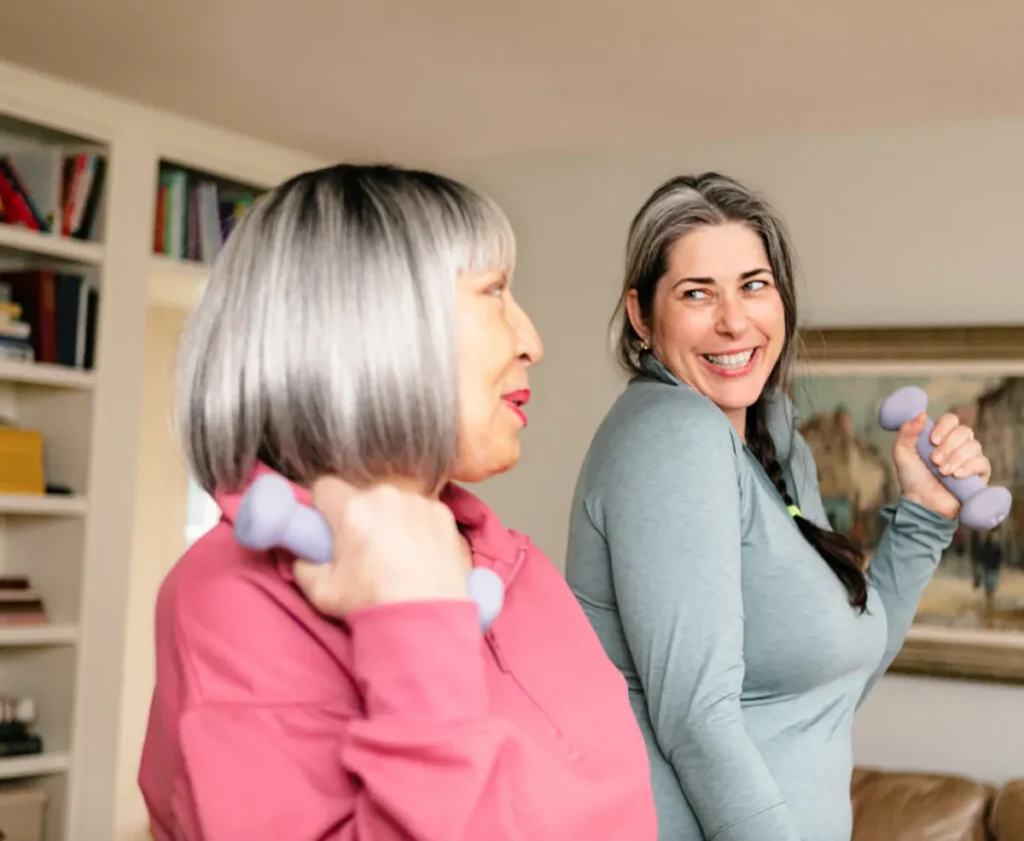
How to combat Ageism
The best way to combat ageism is by dismantling the stereotypes. Dr. Becca Levy, a professor at Yale, has worked hard to upend these stereotypes in her recent book, Breaking the Age Code: How Your Beliefs About Aging Determine How Long and Well You Live. As she researched her book, she found countless examples of positive things that happen when we age. For example, we:
- Become more creative and generative
- Get better at orienting attention
- Become more adept at ignoring distractions
- Are generally more agreeable
- Regulate our emotions better
- Get along better with others
- Become more conscientious
- Report greater happiness and life satisfaction
At our Pathfinders summit, in our session about the many innovating ways that health care providers are working to support older adults, Dr. Geeta Nayya shared how her own parents have learned to use technology and navigate our digital society even when some felt like they were too old to do so.
At Papa, we aim to combat ageism in healthcare by staying committed to ensuring that every member we work with of every race, ethnicity, socioeconomic status and age is treated with dignity. Papa Pals are in a unique position to get to know older adults up close and personal. They get to see firsthand these positive traits that so many older adults exhibit. They can become advocates against ageism (and racism and sexism), which will help make the world a better place.
Examples of ageism: Internalized messaging about aging can negatively influence a person’s health
Ageism in healthcare has significant impacts. Negative beliefs about aging can have a detrimental effect on a person’s health. Studies have shown that people who have pessimistic feelings about aging are more stressed, more depressed, and can experience more illness and disease.
In addition, if someone feels hopeless about aging, they might be less likely to take positive steps toward sustaining good health—like exercising, taking their medication, or participating in social activities.
Levy and her colleagues conducted a study that showed that a positive outlook on aging can actually protect against dementia. She also found that negative perceptions of aging are associated with higher occurrence of all eight of the most expensive health conditions among Americans. She calculated that “the cost of ageism in the United States was $63 billion per year—one of every seven dollars spent for those eight conditions.”
When older adults spend a lot of time in isolation, it’s easy to give in to negative thoughts that can lead to poor health. When an older adult is paired with a Papa Pal who gives them care and attention and companionship—and builds them up verbally—this can give them hope and a better outlook on life and their health.
This is one of the reasons that many health care providers and health plans are making a shift toward home-based care solutions. This allows people to get the health care they need right where they are at, and gives them access to care, companionship and the social support they need to stay healthy.
Reverse ageism by learning from other cultures
Other cultures have “cultivated a higher social value for elders” than we have here in the U.S. They simply treat older adults with more respect, dignity, and inclusivity. In a capitalist economy, we tend to value people based on how much they produce or contribute to society. This type of landscape makes reversing ageism difficult. However, older adults, even if they’re retired, have so much to contribute. Other cultures recognize and value those contributions.
In Japan, for example, Respect for the Aged Day is a national holiday observed on the third Monday of September each year (they also have a Children’s Day on May 5th). And older adults are celebrated year round, not just one day out of 365. It’s also normal in Japan for older adults to live with their children and grandchildren. The older adults help with the children and household tasks—and have been found to be generally happier and more fulfilled than older adults in the U.S.
Other Asian cultures—as well as African cultures, many European cultures, and Indigenous cultures—also have a deep level of respect for older adults in their families and communities. Instead of discounting older adults like we tend to do so often in the U.S., we can learn from other cultures that treat them with dignity and respect and value.
Another thing other cultures do well when it comes to older adults is cultivating intergenerational socialization. Elders are believed to have knowledge, wisdom, and shared experience that they pass down to younger generations. When older adults mentor kids, it can be a beautiful and mutually beneficial experience.
What happens when older adults are paired with young people
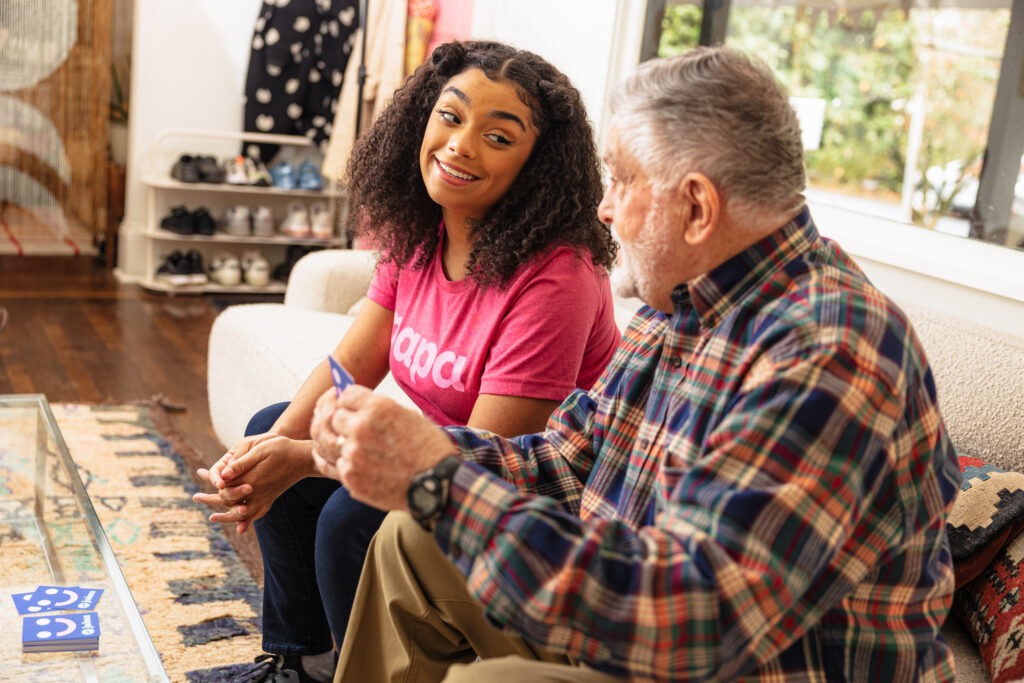
In American society, it’s becoming more and more common to segregate people based on their age. On the whole, young people have almost no contact with older people, except in their own families, and even that is becoming more rare.
Contact alone isn’t enough to counteract stereotypes though. For example, young people will sometimes be brought into nursing homes to do concerts or do activities with older adults. “But if young people aren’t prepared for interpreting that experience,” Dr. Karl Pillemer, a sociologist and professor of psychology and gerontology at Cornell University says, “they can actually leave with more negative views of aging.” He says it’s important to educate young people about the aging process—and to give them opportunities to interact with older adults who are active and engaged.
To achieve that, he designed an intergenerational intervention that pairs high school students and older adults for mutual sharing of wisdom. Students that participated showed improved attitudes toward older people.
One thing that has been happening in recent months and years is that more college students are becoming roommates with senior citizens. As housing becomes less affordable for students, and older adults want to age in place, these kinds of arrangements could become more and more common—and mutually beneficial.
We saw this at Papa from the very beginning. Yes, the older adult who we served needed social support from our Papa Pals, but the Papa Pals who served them found themselves feeling like they were getting more out of the relationship than the member was.
This is a common theme with our Papa Pals. What starts out as a job, quickly becomes a source of connection and companionship. Jessica, one of our Papa Pals, told us that members she works with have become like family to her, helping her to heal after her own father passed away. Robin, a retired nurse who became a Papa Pal to give back told us that her members have become some of her best friends.
Ageism in healthcare is on its way out
Misconceptions and negative beliefs about aging have been around for a long time, but that doesn’t mean we can’t change them. We can dismantle ageism in healthcare by evolving aging terminology into something more positive, helpful, and true.
Dr. Perissnotto is right: Older adults rock.
And we can take our cues from other cultures as we make those changes—both in the way they treat their elders with dignity and respect and the way multiple generations live together. By assembling families with a mosaic of generations, individuals will develop an appreciation for older adults.”
We’re seeing anti-ageism efforts gaining ground. Levy, for one, believes “we’re on the verge of a social movement to bring about a more age-just society.
Papa wants to be part of that social movement. Do you?


